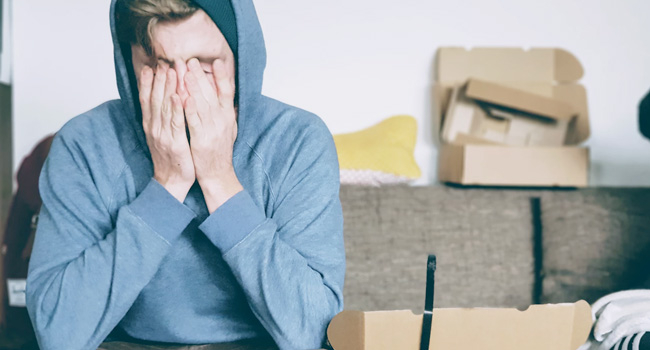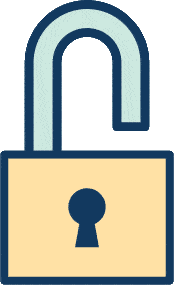Generalized Anxiety Disorder (GAD) affects over 6.3 million adults.
Which means that if you suffer from anxiety – you are not alone. What’s more, even though anxiety has a reputation for being hard to treat, there are some effective things that you can do to fight it.
But even the most effective methods are usually not enough unless you do them every day. Which is why we put together this list of 6 top things to do every day for overcoming Generalized Anxiety Disorder.
By implementing these key things into your routine, with time, you may just find yourself the boss of your anxiety and not the other way round.
Are you curious to know what these 6 strong practices are? Read on!
1. Get Your Sweat On
If you struggle with GAD or even mild anxiety, implementing a daily exercise routine is one of the best things you can do to tame your anxiety.
Numerous published studies have revealed that exercise can be extremely beneficial when treating anxiety and depression.
When one engages in physical activity, the body lowers the production of stress hormones such as cortisol. At the same time, it ramps up the production of the feel-good endorphin hormones. This can result in feelings of upliftment after exercise, as well as a decreased stress response throughout the day.
Tips for Creating and Sticking to an Exercise Routine
Okay, so its all good saying that exercise lowers anxiety – but how does one fit it in and find the time? Like one doesn’t have enough on one’s plate trying to function while dealing with overwhelming anxiety!
Don’t Find Time, Make Time
Well, the answer is – nobody can ‘find’ time. We can only make time. This means that you need to take a hard look at your daily schedule and carve out a block of time every day to devote to exercise.
Switch It Up
Are you someone who finds the idea of exercise boring? If so – consider creating one of the most dynamic and varied exercise schedules that you have ever heard of. How about boxing on a Monday, power yoga the next day, MMA the next – then ballet, tennis, running, swimming, Zumba or whatever else takes your fancy!
How’s that for taking the boring out of exercise?
2. Give Your Mind a Break
One of the integral symptoms of GAD is compulsive worrying. A powerful way to combat this is to engage in a relaxation method that calms the mind such as meditation.
But not only does meditation calm the brain – but it also changes it. Over time, meditation increases activity on the left side of the prefrontal cortex. This just happens to be the area of the brain that generates feelings of peace, calmness, and joy.
There have been a number of studies showing a direct link between meditation and decreased anxiety. However one of the most recent studies has revealed that even just one session of mindfulness meditation can ease the symptoms of anxiety. And if you keep going, for a week, the findings suggest that it will only get better.
3. Practice Gratitude
Practicing gratitude has become recognized as a powerful mind hack for increasing good feelings and positive thoughts. Because of this, it is one of the top healthy habits to implement for busting anxiety.
It is difficult to feel worried and grateful at the same time. And once you begin directing your thoughts in the direction of the things that you are grateful for – there is a good chance that more positive thoughts and feelings will follow. This is what is known as thought momentum.
When practicing gratitude, it is important that you not only think about the things that you are grateful for – but to either verbalize them or write them down. This keeps the mind focussed on the task at hand and helps one not get distracted.
4. Limit Your Caffeine Intake
Unfortunately for us coffee lovers, coffee and anxiety don’t pair too well. The reason is that coffee is a stimulant. Because of this it can elevate the heart rate and cause feelings of agitation. It can also affect one’s sleep patterns and impact the amount of deep sleep that we get – which in turn can cause anxiety.
Which brings us to our next point.
5. Sleep Deep
Getting enough sleep is crucial for general wellbeing. But when dealing with anxiety, it is very important that you are getting the amount of sleep that your body needs.
This is because insufficient sleep can trigger off anxiety. Researchers have found that there is a bidirectional relationship between inadequate sleep and anxiety.
A lack of sleep can leave you feeling even more anxious, and anxiety can cause you to have difficulty falling asleep as well as reaching the deep rejuvenating stages of sleep. Talk about a double edged sword! So what can one do?
To give your body the best chance of getting great sleep, you can practice good sleep hygiene and try out the following things:
- Avoid screens 1-2 hours before bed
- Cut down on caffeine and alcohol
- Eliminate all sources of light in your bedroom when you are asleep
- Begin dimming the lights in the house 1 hour before you go to bed
If you have been suffering from poor quality sleep, you may find that improving your sleeping pattern could significantly assist with lowering anxiety levels. Which in turn may allow you to get better sleep!
6. Practice the 10-10-10 Mind Strategy
As mentioned above, anxiety is characterized by repetitive and compulsive worrying. And when one is worried about something, it’s difficult to just decide to ‘stop worrying about it’.
But here is a trick.
It is called the 10-10-10 rule, and it goes like this. When you are worried about something, ask yourself, “Will this matter in 10 days?” If the answer is no, ask, “Will this matter in 10 weeks?” And finally, “Will this matter in 10 months?”
You may find that for a large portion of things that you find yourself worrying over, the answer is no to all three!
You Now Hold Some of the Best Strategies for Overcoming Generalized Anxiety Disorder
Battling GAD can feel like extremely tough going. When one’s anxiety is at its worst – it can be hard trying to imagine that it can ever improve.
But, the reality is that there are some tools out there that you can leverage when overcoming generalized anxiety disorder. By incorporating these anxiety-smart practices into your day – there is a good chance that you will experience relief and gain a hold on your anxiety.
If you feel that your anxiety is stopping you from dating and pursuing a relationship, be sure to check out our free and paid memberships for our safe and secure online dating platform for people diagnosed with disabilities, GAD, and depression.



